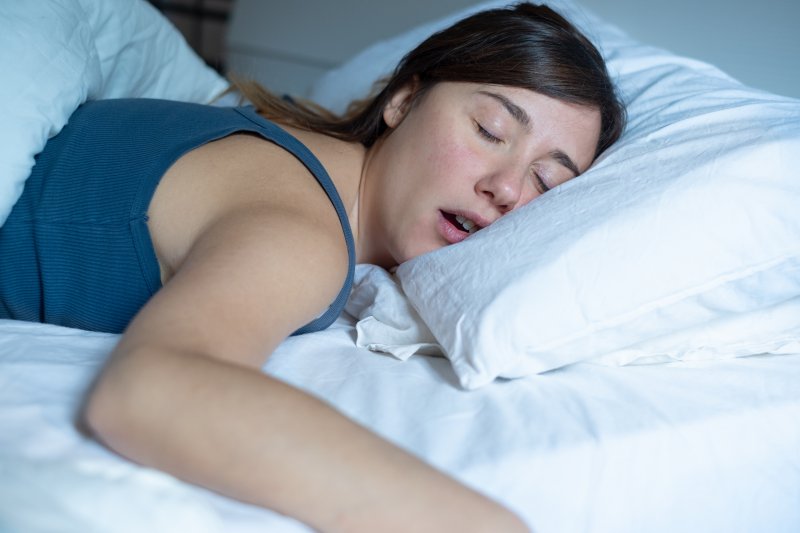
On its own, sleep apnea is already a very dangerous problem. Having your breathing interrupted repeatedly during the night can take a heavy toll on your blood pressure and heart health, and drowsiness from a lack of quality sleep can lead to accidents during the day. However, recent studies have shown that some sleep apnea sufferers may have even more to worry about. Researchers are finding that women with sleep apnea have a higher risk for oral cancer, and understanding why could be the key to protecting your overall health.
What is the Link Between Sleep Apnea and Cancer?
A study in the European Respiratory Journal reviewed the data of over 20,000 adults with sleep apnea. The results suggested that women with severe sleep apnea had a two to three times greater risk of cancer. While these findings don’t provide definitive proof that sleep apnea can cause cancer, there does seem to be a clear link between the two conditions.
There are several theories for this link. One is that sleep apnea and cancer have a few common risk factors; they’re both more likely to occur with old age, and they can be both be connected to obesity. Another idea is that the cancer might be a result of sleep fragmentation and lack of oxygen, both of which are common occurrences in patients with sleep apnea.
It’s not currently clear why the link might be stronger in females, but some speculate that it might be a combination of certain hormones and sleep apnea induced stress weakening the body’s immune system.
What Can You Do to Protect Yourself from Sleep Apnea and Cancer?
It goes without saying that avoiding or successfully treating sleep apnea does not guarantee that you won’t get cancer. Nevertheless, it’s always best to have a sleep disorder diagnosed and addressed as early as possible in order to avoid the worst of the effects.
Snoring, gasping for air during sleep, morning headaches, insomnia, and difficulty paying attention during the day are all possible symptoms of sleep apnea. If you notice these warning signs (or are told about some of them, such as snoring, by a partner), you should get in touch with an expert who can give you a proper diagnosis. You can then pursue possible treatments.
CPAP therapy is perhaps the most well-known solution for sleep apnea. However, if you don’t want to rely on a noisy machine, you may be able to get a comfortable oral appliance to keep your airway open instead.
It always pays to be proactive about matters of health, and when it comes to dangerous conditions like sleep apnea and cancer, acting quickly can be lifesaving. Call your sleep dentist today if you have reason to be concerned about sleep apnea.
About the Author
Dr. Darren Koch has been working as a dentist for the past 17 years. He has also completed further education and training in many important areas of dental care. This includes sleep apnea therapy so that his patients can get a good night’s rest while protecting their overall health. He is currently a member of the American Academy of Dental Sleep Medicine. To schedule a consultation with Dr. Koch at his Cary practice, visit his website or call (919) 859-6633.






